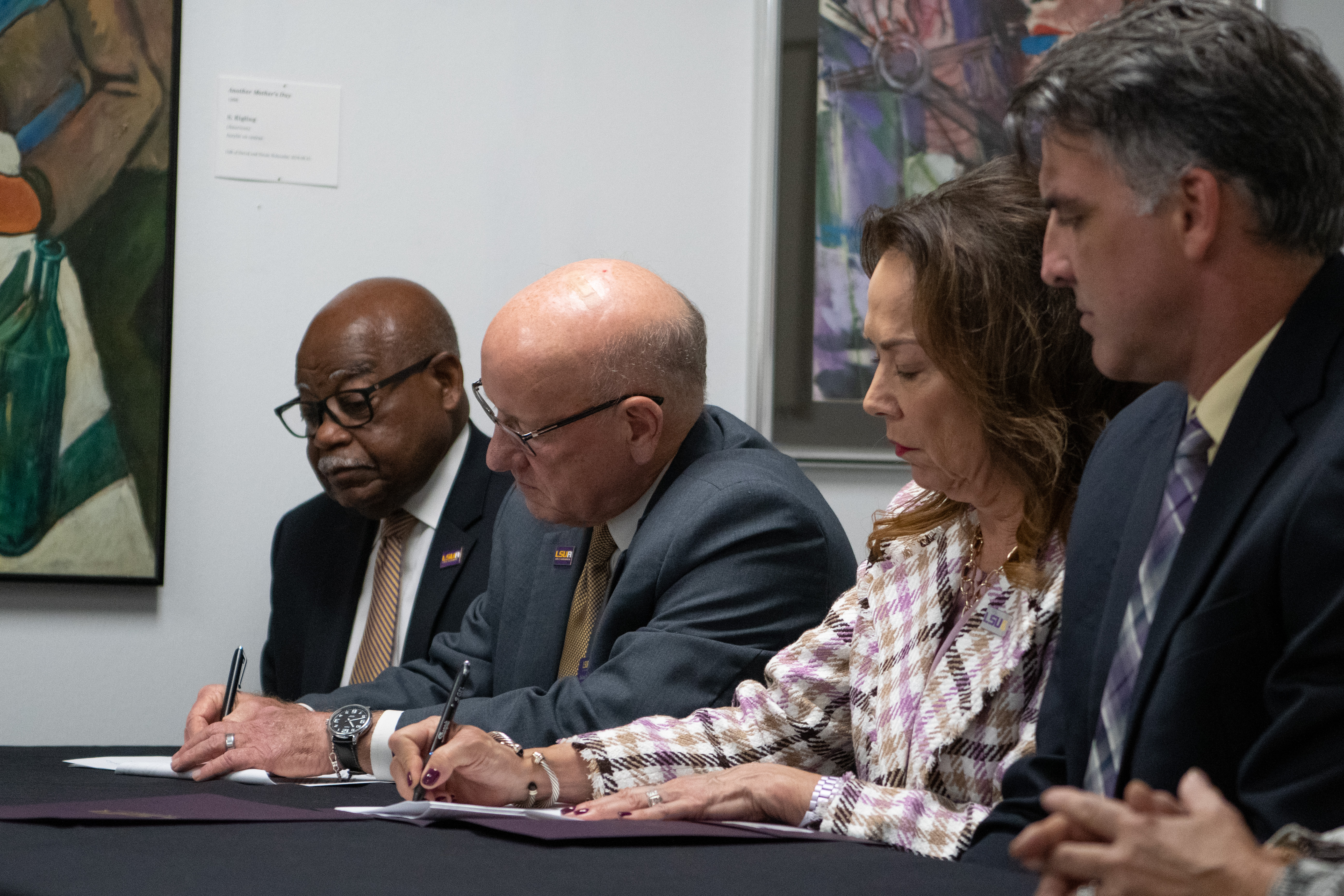About the Student Technology Fee
Thank you for visiting the home page of the Louisiana State University at Eunice Student Technology Fee (STF). This site contains information about the history of the STF, as well as instructions for submitting proposals to the STF Committee.
Overview
During the 1997 legislative session, House Bill 2339 co-authored by Representatives Daniel, Holden, Odinet, Toomy, and Welch was approved providing for the assessment of a student technology fee at institutions of higher education throughout the state. This affords these institutions with an excellent opportunity to enhance the educational experience. They can now provide a level of technology to their students comparable to that found at institutions not only throughout Louisiana, but also throughout the country. Due to the expense involved in technological endeavors, it is imperative that careful consideration be given to the development of a framework for using these funds so that they are used in a manner consistent with the spirit of the initiative and that will lend the greatest benefit to the students.
The language of the bill providing for the fee assessment stipulates the following:
Proceeds from the assessment of the technology fee shall be used in accordance with a written plan developed by the institution for purposes of implementing, replacing, improving, and expanding technologies to benefit student life and learning and such use shall be in compliance with any applicable provisions of the federal Americans with Disabilities Act of 1990. In developing the written plan, the institution shall provide students with the opportunity to make recommendations concerning the use of fee proceeds.
The term "technologies" is defined in the legislation as:
For the purpose of this section, "technologies" includes, but is not limited to instructional and laboratory equipment and the networking and supporting computer and telecommunications infrastructure to support these activities.
LSUE appointed a committee consisting of faculty, administrators, and students to create a framework for the appropriation of student technology fee proceeds. This group was charged with the task of preparing a written plan which identifies the university's student technology goals, presents answers to the questions outlined above, and provides an oyerview of technology priorities identified by the committee. Substantial consideration should be given to the needs and desires identified by the student body.
Program Goals
The Student Technology Fee Committee at LSU Eunice (STFC) exists to create and implement a plan for the infusion of technology into the teaching and learning process. In doing this, the institution seeks to accomplish several goals:
-
- To increase the level of comfort with technology among both students and faculty.
- To offer students access to the latest innovative technologies needed to prepare them for today's workforce.
- To serve the community through leadership in the use of innovative technology in the enhancement of the educational experience.
Tech Fee Guidelines
LSU Eunice will allocate Student Technology Fee funds in three categories:
- Priority Recurring
- Priority Non-recurring
- Open Proposals
Priority is defined as items required to enhance or update infrastructure areas in order to facilitate the use or proliferation of technology at the University. This also includes items related to technology management, which may directly impact the students ability to use these resources. Examples of these would include:
- Upgrade of the campus Internet connection to provide greater access to a larger number of students
- The purchase of technology to allow us to provide a consistent reliable desktop environment in areas throughout the campus
- Finally, items such as the necessary replacement of equipment responsible for the storing or usage of services that benefit students
Projects providing resources available for the open use of all students could also be placed in this category. Items to be considered for priority funding will be evaluated and recommended by the individual responsible for campus technology integration, who is currently the Director of the Office of Information Technology, following consultation with the Student Technology Fee Committee.
Open proposals will be competitive in nature. The amount available in this fund will be dependent upon the total fees collected during the year as well as the amount already appropriated to the priority categories. Factors to be considered when evaluating these proposals would include:
- The total number of students that will be impacted if the proposal is funded
- Is the funding of this proposal necessary for the program to provide essential elements of instruction to students? (Example: current software in computer literacy course)
- Is the project eligible for other funding sources? At the discretion of the group evaluating the proposal, some preference may be given to an area that can provide evidence of potential cost sharing with other fund
- Whether the project addresses a student defined need or request as identified by the student technology needs analysis
- Items classified as recurring costs must be related to infrastructure, projects required for essential areas of instruction, or in support of student requested projects
- At the discretion of the group reviewing proposals, some preference may be given to proposals in which the division or department has a proven record of seeking and/or obtaining external funds. (Example: submitting LEQSF proposals each time the division is eligible)
The following guidelines should be adhered to when evaluating any type of proposal, priority or open:
- Student Technology Fee proceeds may not be used to supplant funds currently being used. This would include but not be limited to: Salaries of currently funded positions, supplies, etc...
- All projects must have a direct impact on the student or be required to make other such projects possible
- Emphasis will be given to projects, which are identified by the students as an essential need or those that might increase the quality of student life




